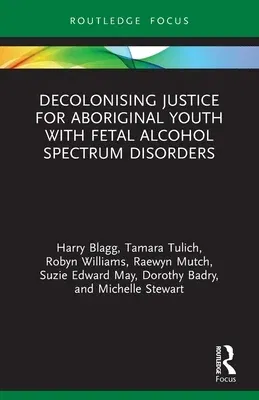This book reflects multidisciplinary and cross-jurisdictional analysis
of issues surrounding Fetal Alcohol Spectrum Disorders (FASD) and the
criminal justice system, and the impact on Aboriginal children, young
people, and their families.
This book provides the first comprehensive and multidisciplinary account
of FASD and its implications for the criminal justice system - from
prevalence and diagnosis to sentencing and culturally secure training
for custodial officers. Situated within a 'decolonising' approach, the
authors explore the potential for increased diversion into Aboriginal
community-managed, on-country programmes, enabled through innovation at
the point of first contact with the police, and non-adversarial,
needs-focussed courts. Bringing together advanced thinking in
criminology, Aboriginal justice issues, law, paediatrics, social work,
and Indigenous mental health and well-being, the book is grounded in
research undertaken in Australia, Canada, and New Zealand. The authors
argue for the radical recalibration of both theory and practice around
diversion, intervention, and the role of courts to significantly lower
rates of incarceration; that Aboriginal communities and families are
best placed to construct the social and cultural scaffolding around
vulnerable youth that could prevent damaging contact with the mainstream
justice system; and that early diagnosis and assessment of FASD may make
a crucial difference to the life chances of Aboriginal youth and their
families.
Exploring how, far from providing solutions to FASD, the mainstream
criminal justice system increases the likelihood of adverse outcomes for
children with FASD and their families, this innovative book will be of
great value to researchers and students worldwide interested in criminal
and social justice, criminology, youth justice, social work, and
education.

